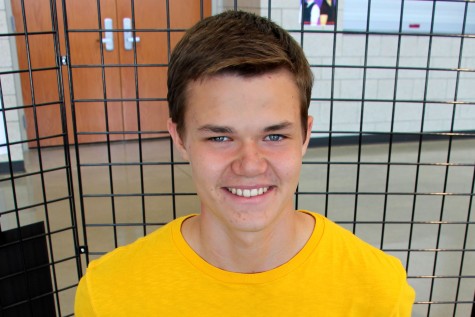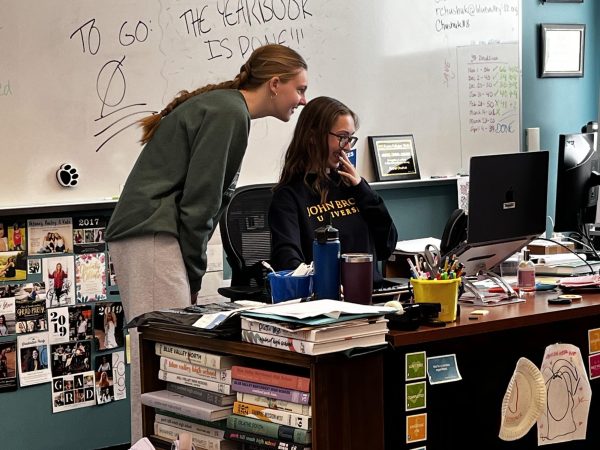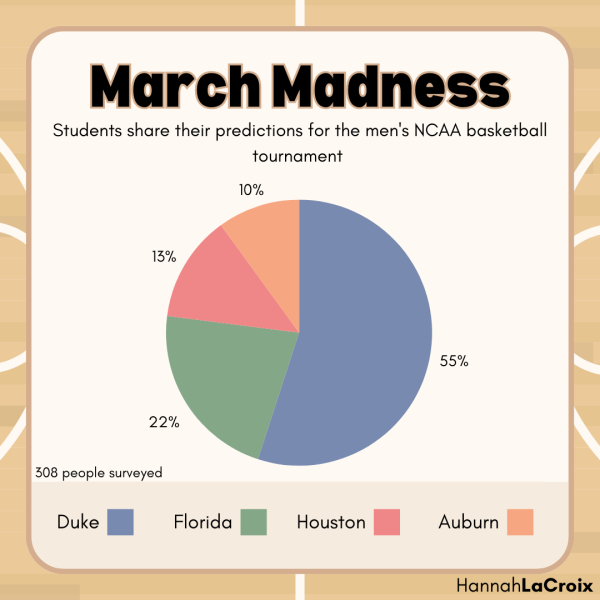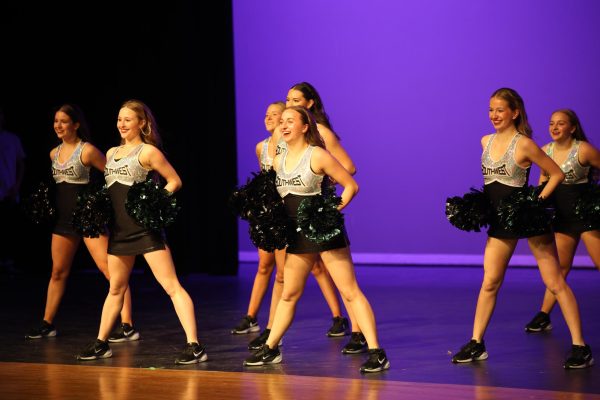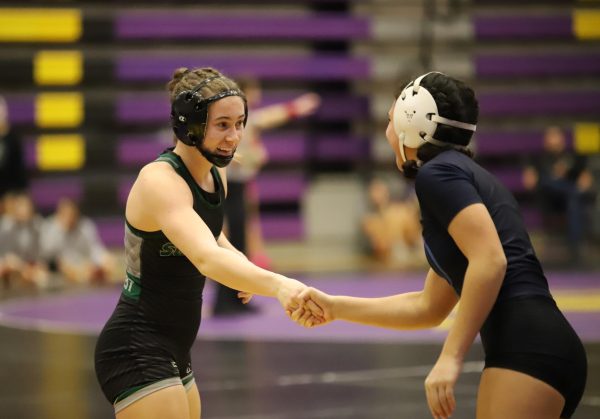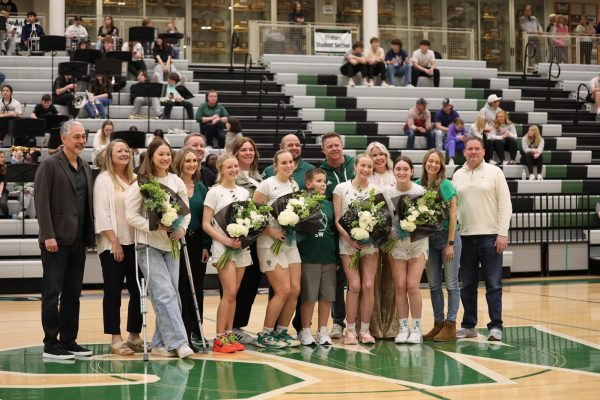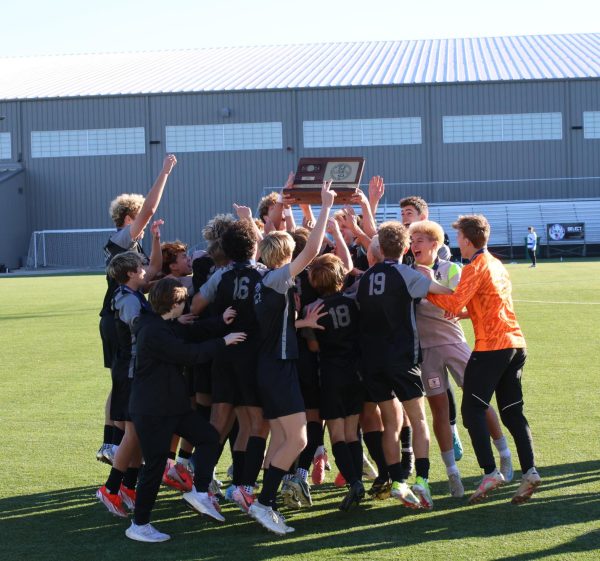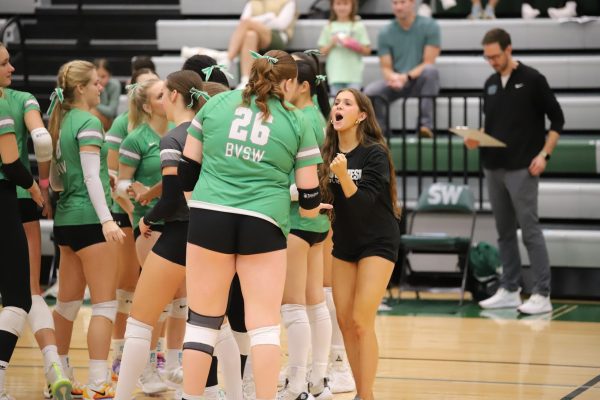Sophomore Noah Green competes in US Junior Olympics
Sophomore Noah Green arrived to the track early on that bright summer morning. He ran a mile to warm up and began his training. First were the drills, then came the hurdles and then came the strides. After completing the regiment, Noah could do as he pleased, as he had the rest of the morning and afternoon to himself. However, he had to report back to that same track that night for a rerun of his morning routine and the specific workout for that day. Every day, Noah repeated this cycle, determined to improve himself among the field and ensure that this year would not be a repeat of the last at the Junior Olympics.
“I finally realized that I had the talent,” Noah said. “I would say ‘If I had done just this much more then I would have been able to make it farther.’ This year, I was more determined, and I went all the way. I wanted it more.”
After making his first appearance in the Junior Olympics the prior year, Noah was immediately ambitious about the next. He qualified for only one event and was eliminated in the first qualifying race. However, after hard work and determination, this past year proved to be different as he was able to take third in the 400-meter hurdles and fifth in the 110-meter hurdles, with times of 54.24 seconds and 14.76 seconds respectively.
“I was extremely happy because it was the first year that I did well and the first time I medaled and I was really excited about that,” Noah said.
His determination and hard work came in the form of five to six hours of training per day throughout the summers, and two and a half hours of training during the school year. The majority of these hours of training came specifically with his track team, KC Flyers. The club helps with much of his training and coaching, as form is crucial to being a successful runner.
“If your form is bad, a guy could be slower than you, and have better form than you and end up beating you,” Noah said. “I was extremely mad when I got out at State because of everyone that beat me, I was beating them by a lot throughout the season”
Noah not only has coaching resources from his club team, but he has another coach that is with him 24 hours of the day, seven days a week, in the form of his dad. A collegiate sprinter himself, Noah’s father, Benjamin Green, ran at the community college level before getting a track scholarship to Baylor, and then transferred back to his native state of California to finish his career at Fresno State.
“My coaching never stops,” Benjamin said. “I’m here. We talk every day about something different.”
Noah likes the dynamic, although he admits it can be tenuous while it can be very helpful at the same time.
“He’s my dad, so I have to listen, and sometimes I get irritated and I don’t want to take his advice, but in all reality it’s the best advice he could’ve given me,” Noah said.
Having his dad around to coach helped Noah to an early start in his career, as he has been a track All-American four of the last five years. These All-American accolades not only came through sprinting and hurdling, but also through triple jump, as Noah was a national champion at age 13.
When it came time for Noah to take his next step in his track life and start his high school career last spring, he translated much of his success on the national level to the state level. He did this despite having to compete in a field that was widely two to three years older than him, which was quite a change for him as he had been competing in his own age group since the start of his career. However, with the determination he showed on his path to the US Junior Olympics, he succeeded throughout the year.
“He has definitely put more time in than everyone else,” sprinters coach Dustin Leochner said. “His technique, as a runner, and as a hurdler, was very advanced as a freshman, without a doubt, and that came from a lot of hours of technical discipline.”
The hard work paid off with a second place finish in the state championship, beating out upperclassmen competitors. Instead of being content with such success, it has left Noah hungry for more, as he has reset his sights on this season.
“My goal is to become champ in the 300-meter hurdles because I got second last year, and to move up in the 110-meter hurdles, because I got out in the first round last year,” Noah said. “When I got out in the first round because of a mistake, it really irritated me because I could’ve went to the next round and done better.”
According to Brittany Harding, Noah’s hurdles coach and science teacher, it is a very reasonable goal for him, as his work ethic will carry him to his goals.
“In order to be a great athlete, you have to be self-motivated, and able to push through times, and I think that’s part of his personality,” Harding said. “He just works hard because he’s able to push through the not-so-fun days in order to get the reward out of it.”
However, a unique experience for Harding, one which many other coaches do not get to have, is she gets to see his work ethic in the classroom. From what she has seen thus far, it is clear that his work ethic carries over from track.
“I was surprised to see how his work ethic from track transferred over to the classroom. He’s serious, he wants to get stuff done, and he wants it to be done right,” Harding said. “Being detail-oriented is a huge part of hurdles, and paying attention to detail is part of his personality. It benefits him a ton, both at school and on the track.”
Harnessing his own work ethic will also help Noah in his quest for his ultimate goal; to qualify for the World Youth Team and represent America on an international level. After his success at the Junior Olympics, Noah is hungry to achieve his ultimate goal.
“It is a big goal of mine, seeing this year the team was able to travel to Columbia,” Noah said. “I feel like it would be a really good experience for me before going off to college if I can at least make it once.”
The World Youth Team is a new challenge for Noah, as it only takes the top two runners in each event from anyone younger than 18, giving him a significant disadvantage as he is currently 16. However, being invited to the trials for the team was a big inspiration for Noah, using it to propel his other goals.
“I realized I had the talent for the Junior Olympics because that was the first year that I was invited to the Youth World trials, and I was really pumped up for that,” Noah said.
Even with the hours of practice each day to achieve his numerous goals, Noah has been able to balance a healthy lifestyle, managing both academics and athletics. This has become apparent to everyone he surrounds himself with, especially Harding.
“Noah is a phenomenal athlete, but he’s an even better person,” Harding said. “He works hard, and you have to respect anyone who works that hard. Anything he decides to do, even if it’s not with track and it’s with school, I think he’s going to be really successful.”


